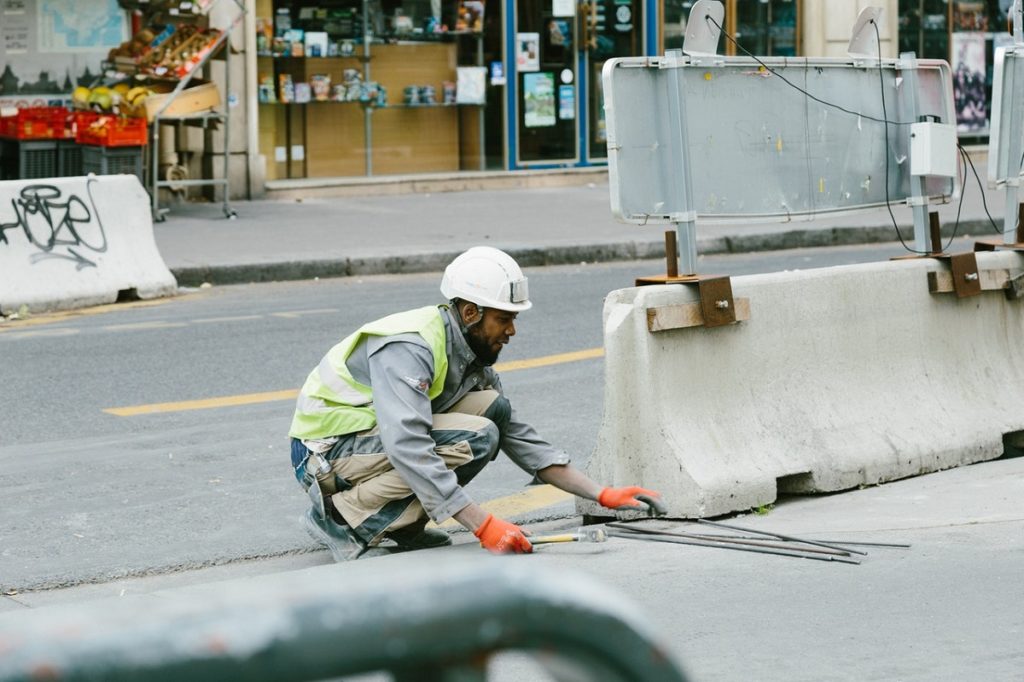It’s difficult to imagine a modern world without roads or vehicles driving over anything but smooth asphalt and paved concrete. Indeed, the road construction industry is a necessary driver for economic growth and human civilization, but it can also be among the reasons for society’s eventual demise.
This is because the road sector is among the highest contributors to the world’s carbon footprints—the total amount of greenhouse gases in the earth’s atmosphere. These greenhouse gases are a result of the carbon emissions from burned fossil fuels needed in mining, transportation, and the automotive industries.
However, because all these processes are essential to keep the economy afloat, the bulk of impact is received by the environment and is increasing the rate at which global warming progresses. As such, the need to make sustainable and eco-friendly actions should be placed at the forefront of society’s priorities.
Transitioning to a completely sustainable society is not something that can be done overnight, but it can be achieved within this decade or the next if the world starts acting now. In fact, here are three sustainable innovations that are in the works and currently being applied in the road construction industry:
Recycled Materials
As more people and businesses have become dependent on vehicles and roads for their day-to-day needs, the road construction sector is faced with challenges to provide for this growing market demand. One of their biggest challenges is to source cheaper raw materials, especially now that they are becoming scarcer.
To address this problem, construction companies are turning to sustainable solutions that can eliminate any negative environmental impacts of their actions. Among these solutions is the use of cost-effective recycled and renewable materials sourced from industrial by-products and on-site debris.
Other materials used in sustainable road construction can include organic resins, cement substitutes, and even microalgae to produce asphalt. Of course, all these alternatives will need to be studied further to ensure their efficacy and durability, but knowing that there are sustainable options is already a step towards progress.
Waterproofing Solutions

Constructing a road can take anywhere from two to three years or more because of the sheer amount of work involved. Even before the actual construction of the road begins, so much preparation needs to be done because the environmental, social, and economic impacts of the roads have to be studied.
That lengthy duration is not only hard on the construction company assigned to making the road, but also on the people inconvenienced by the ongoing construction. Usually, there would be detours, reroutes, and traffic congestion wherever ongoing road constructions are happening.
This is why the roads must be built for durability because any repairs in the future would add to the inconvenience experienced by both everyday citizens and construction companies. They should use quality materials and sustainable solutions that are aimed at road longevity.
It can also be wise to look into innovations that can ensure that the roads will be durable enough to last for a few years without heavy repairs aside from regular maintenance. For instance, construction companies can spray bituminous waterproofing solutions on the asphalt so that they can minimize the chances of water seepage, which in turn, can extend the lifespan of the roads altogether.
Renewable Energy
Roads are essential to society because they allow people to get to where they need to go. They are also indispensable to the economy because they are necessary for the transportation of raw and finished goods. Without well-maintained and functional roads that are accessible to the public, it would be impossible to achieve what the world does today.
However, despite this necessity, the inconvenience on people and the negative impacts of road construction on the environment cannot be discounted. Roads consume approximately 33 billion meters of the earth. If these were all turned into potential sources for renewable energy, it can lessen the need to burn fossil fuels that release harmful carbon emissions into the atmosphere.
There are high hopes that by embedding renewable energy sensors in roads, it can become a game-changing sustainable solution worldwide. For starters, it can be used to recharge the batteries of electric cars driving over them at full speed or generate electricity to power roadside lights and signs.
21st-century technology is revolutionizing almost every aspect of the world, but some of that progress comes at the expense of the environment. Any developments made for human civilization will be futile if humanity fails to address the climate change crisis because it will end the earth as people know it.
That’s why it’s vital to act now, while there’s still a chance to slow down the devastating effects that climate change will bring. It may be impossible to reverse the negative impacts that human activity has made on the environment, but making small sustainable changes will still be better than doing nothing at all.

